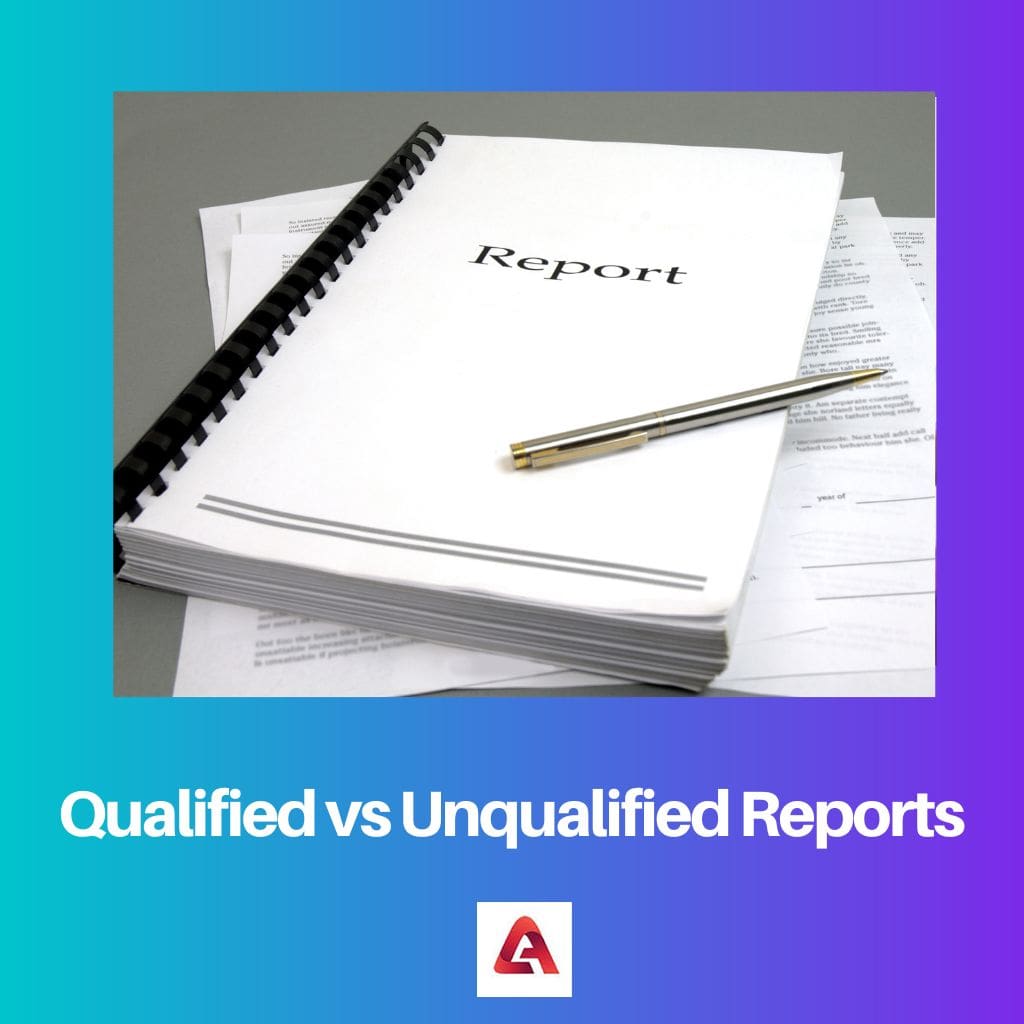A qualified report is a document that includes an opinion or assessment on a specific topic or subject but with certain limitations or qualifications. These qualifications may be due to incomplete information, a lack of expertise in a particular area, or other factors that may affect the accuracy or reliability of the report.
On the other hand, an unqualified report is a document that includes an opinion or assessment on a specific topic or subject without any qualifications or limitations. This type of report is considered to be more comprehensive and definitive in its conclusions.
Qualified reports from auditors highlight issues that they have found in a company’s financial statements that require attention and resolution. Unqualified reports signify that the auditor found no material issues with the financial statements and that they are in compliance with the regulations.
Key Takeaways
- Qualified reports indicate an auditor found discrepancies or deviations from standard accounting practices in a company’s financial statements.Unqualified reports denote that an auditor has found no material misstatements or deviations and approves the financial statements as fairly presented.Companies should strive for unqualified reports as they demonstrate financial integrity and transparency, attracting investors and stakeholders.

Comparison Table
| Parameter of Comparison | Qualified Report | Unqualified Report |
|---|---|---|
| Definition | A document that includes an opinion or assessment on a specific topic or subject, but with certain limitations or qualifications | A document that includes an opinion or assessment on a specific topic or subject without any qualifications or limitations |
| Purpose | Used in situations where it is not possible to provide a complete and definitive assessment due to incomplete information or a lack of expertise | Used in situations where it is possible to provide a complete and definitive assessment based on all available information |
| Scope | Maybe less comprehensive or definitive in its conclusions | More comprehensive and definitive in its conclusions |
| Use | May be used to provide a preliminary assessment or to highlight areas of concern that require further investigation | Used to provide a final assessment of the topic or subject |
| Conclusions | May not provide a definitive conclusion | Provides a definitive conclusion based on all available information |
| Requirements for Preparation | May require specific qualifications or expertise in a particular area | May not have specific requirements for preparation |
What is Qualified Report?
A qualified report is a document that includes an opinion or assessment on a specific topic or subject but with certain limitations or qualifications. These qualifications may be due to incomplete information, a lack of expertise in a particular area, or other factors that may affect the accuracy or reliability of the report.
Qualified reports are used when it is not possible to provide a definitive conclusion or when the information available is insufficient to make a complete assessment. In these cases, the qualifications or limitations included in the report help to clarify the limitations of the opinion or assessment and provide context for the reader.
Qualified reports may also provide a preliminary assessment or highlight areas of concern that may require further investigation. In these cases, the qualified report serves as a starting point for further analysis or research rather than a conclusion.
It is important for readers of qualified reports to consider the qualifications and limitations included in the report carefully and to consider them when interpreting the information in the report.
What is Unqualified Report?
An unqualified report is a document that includes an opinion or assessment on a specific topic or subject without any qualifications or limitations. This type of report is considered to be more comprehensive and definitive in its conclusions, as it is based on all available information and does not include any qualifications or limitations that may affect the reliability or accuracy of the report.
Unqualified reports are used in situations where it is possible to provide a complete and definitive assessment based on all available information, such as in cases where there is a sufficient amount of data or expertise available to make a confident and accurate assessment.
Unqualified reports may be used in a variety of settings and for a variety of purposes. They may be used to provide a final assessment or recommendation on a specific issue, to present the results of an investigation or study, or to present the findings of an audit or review.
In these cases, the unqualified report is intended to provide a comprehensive and definitive conclusion based on all available information. It is important for readers of unqualified reports to carefully consider the information presented in the report and consider it when making decisions or taking action based on the report’s conclusions.
Main Differences Between Qualified and Unqualified Reports
- Qualified reports include qualifications or limitations, while unqualified reports do not.
- Qualified reports may be used in situations with incomplete information or a lack of expertise, while unqualified reports are used in situations with complete and definitive information.
- Qualified reports may provide a preliminary assessment, while unqualified reports provide a complete and definitive assessment.
- Qualified reports may be less comprehensive or definitive in their conclusions, while unqualified reports are more comprehensive and definitive.
- Qualified reports may be used to highlight areas of concern that require further investigation, while unqualified reports provide a final assessment of the topic or subject.
- Qualified reports may be used in situations where it is not possible to provide a definitive conclusion, while unqualified reports provide a definitive conclusion based on all available information.
